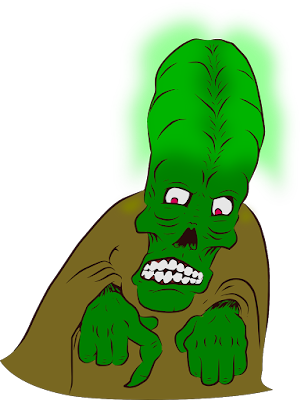 |
| Credit:Pixabay.com |
I’ve been lately amazed at what science fiction can do for real life. Of course, it inspires innovations in science and technology, but there’s something else that it inspires: religion.
Maybe it shouldn’t be that surprising. Both science fiction and fantasy are made of the mythic element, which that element comes from speculation. Almost all religious texts such as the Bible and the Bhagavad Gita are, at least in part, fiction. Many of the stories from these texts came from oral origins where they were told by word-of-mouth through generations and memorized. As nobody’s memory is perfect, these stories were changed and reinterpreted through centuries. Not too mention, they were told according to the knowledge of the times which, compared to the knowledge we have today from modern science and technology, that knowledge was limited. So people in ancient times believed that people ten times larger than the average person existed and that spirits had sex with living humans, both of these examples being from Genesis of the Bible.
So like these stories were speculations, science fiction and fantasy are speculations that convey universal truths through their themes such as the consequences of mad science (Frankenstein) or questions about where a person’s soul (or conscience) goes after they die. Let alone, sci fi attempts to anticipate the future like religious prophecy does. Because of these functions, religions can be made from science fiction and fantasy easily. That’s why you have such religions as the Church of Scientology (which was started by the pulp sci fi writer, Ron L. Hubbard) and even a church based on the Force philosophy in Star Wars, the Church of the Jedi. Now how legit these religions are may be a different story.
So, all summer I’ve been researching such religions. This includes the book I’m reading, Inside Scientology by Janet Reitman who is a really good journalist who does an objective study of the religion. I also watched a real freak-out (the way I like them) of a movie Friday night, a mockumentary called Arise. It was produced by an organization that calls itself the Church of the Subgenious. The organization is based on ideas from popular science fiction movies and it basically shows that speculative pop culture does what religion does: give people a sense of belonging and understanding of themselves if not of God, who in this organization’s case is Bob (Bob Dobbs to be exact).
I want to discuss religions such as these and their sci fi/fantasy roots in more detail but don’t have time to do it now. But with the sci fi revolution going so strong today, I want to leave you with a link to an article from The Guardian that tries to answer the question, is science fiction the new religion? Take a look at it and then leave your own answers to the question in the box below.
“Circa Sixty Years” Cover Illustration Update
I’m still working on the illustration for “Circa Sixty Years Dead”. I found out I had to put a second layer of coloring on the landscape since it’s the second darkest part of the picture. I’m not as much an illustrator as I am a writer, even though I have a background in art. So it takes me longer to produce a painting than it does a story, considering. Each of the two is a full-time job for me.Until next time . . .
Don't think either of those are very legit. Have you seen the HBO film Going Clear?
ReplyDeleteA lot of mythology and religion in both science fiction and in fantasy.
And as for me personally, I know there is no fiction in the Bible.
I haven't seen Going Clear but would like to. I've seen several other documentaries on Scientology and all I can really say is that I'm not a fan of their events or courses.
DeleteThis comment has been removed by the author.
ReplyDeleteThere is a science fiction book you may like: INFERNO where a science fiction dies and goes to the Hell of Dante, where he tries to explain everything he sees in terms of possible scientific explanations. It is by the great team of Jerry Pournelle and Jerry Niven who did THE MOTE IN GOD'S EYE, a true science fiction classic. Thanks for visiting my blog. :-)
ReplyDeleteI meant science fiction WRITER dies and goes to Hell.
DeleteIt sounds like an interesting book; I've never heard of it until now (although I've definitely heard of Pournelle and Niven's Mote In God's Eye which, as you said, is a true classic). I'll have to check it out sometime. Thanks. And thanks for visiting my blog, too. :)
DeleteI read this great story years ago about a guy who gets stranded on an alien planet and convinces the natives he's a god due to his superior technology. I've always thought that a lot of miracles probably have logical explanations.
ReplyDeleteVivian, I've read stories with similar plots, many with their own twists. Plots like those are really interesting. We've seen similar situations in history such as the Spanish conquistadors with the indigenous peoples who thought they were gods with their magic sticks that could kill (guns) and that they were "centaurs" because they had never seen riders on horses before, let alone horses. Arthur C. Clarke once said that what is one culture's magic is another culture's science (or vice versa).
ReplyDelete